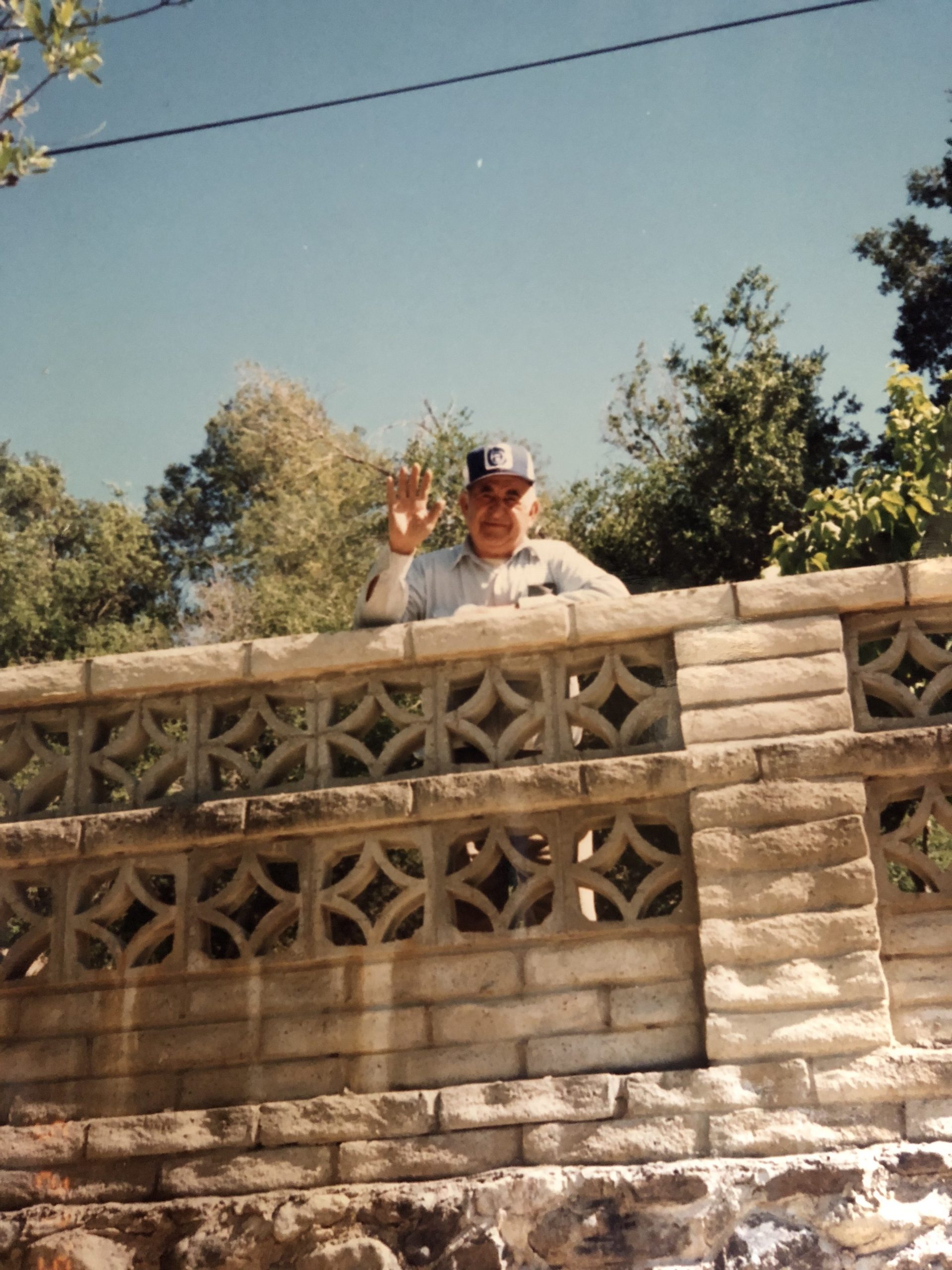Papa Rossi had suffered the effects of a stroke for months.
I lived states away and hadn’t gotten to see him, but had received photos and FaceTime calls. I wanted to be there, but resources and schedules made multiple trips a challenge for us. So, I surrendered to Divine right time.
Sunday, May 6, 2018, I told my husband I felt like the time was near for him to transition, and I felt we needed to go to California to see him. I had never experienced so much uncertain certainty; I knew we needed to leave, but couldn’t explain it.
My supportive husband didn’t give it a second thought. I called the airline and booked tickets for that Thursday. We were to arrive at 11 a.m.
During the night, I was serenaded awake at 3 a.m. by what sounded like 20 owls talking and singing outside my window. My eyes popped open, and this overwhelming knowing came over me that we needed to go much sooner.
I moved the departure to first thing in the morning, and we left the next day.
Had I not done that, we wouldn’t have had a goodbye nor seen him again.
By the time we arrived, he was already deep in his transitional sleep. While I missed out on seeing his beautiful brown eyes one last time, and feeling the calming effects of his gentle smile, his spirit was still present.
He was a true patriarch of his family—a father to six amazing souls, and a grandfather to many more—and whoever could physically be there for him to fulfill any wishes he had was there.
Everyone deals with death and transitions so differently. Some of our family still thought he would wake up, some were confused; however, we were all sad to see him helplessly lying there, and each did the best we could to honor what he wanted.
My time with Papa in his final moments brought flashbacks of my grandma Rena’s death years prior. I was younger and emotionally immature. While I got to say goodbye to her sleeping body in the hospital, overwhelming sadness took over, and I didn’t know how to be there. So I left.
I regretted not staying with her and wished I could have done differently. I learned from that and wanted to do whatever I could to bring more light to Papa’s transition.
We had just under two days with him before he left his body on Ascension Thursday. He died at 10:05 a.m. on May 10, 2018—55 minutes before our original scheduled arrival time.
I cherish the two days I was able to be there. I am grateful I had grown spiritually and was able to be fully present with him.
The following is a list of some things I did and other ideas that could help shift the experience of death from fear and worry to beautiful and heartfelt:
1. Say the Ho’oponopono, a Hawaiian practice of reconciliation and forgiveness. The phrase is “I love you, I’m sorry, please forgive me, and thank you.” Repetition of these words is known to help reprogram the subconscious mind and help each person discover comfort and security within, promoting forgiveness and love.
2. Sing. I am not nearly as talented as some of my uncles and aunts when singing, but any singing raises the vibration. I like to sing one of three variations of the words to the Ho’oponopono mentioned above, or chant, or even hum.
3. Read books. Of course, if the person is coherent, ask them what they would like to hear. Otherwise, some suggestions are When Breath Becomes Air by Paul Kalanithi, Tuesdays with Morrie, by Mitch Albom, or even the Bible if that resonates.
4. Read poetry. Poetry can be easier than a book, shorter, and in my experience, requires less thinking and allows for more feeling of the words.
5. Read old letters (if available). My nana dug up old love letters my papa had written her when they were dating, and he was away at war. While they were all in Italian, and I couldn’t understand them, they moved me. This was also very helpful for her to revisit and celebrate the love they shared.
6. Touch. Holding their hand is affirming and assures us we aren’t alone. Studies show that touch signals safety, calms cardiovascular stress, and activates the body’s vagus nerve. A simple touch can also trigger the release of oxytocin, which is known as the “the love hormone.”
7. Discuss afterlife signs. While I wasn’t able to do this with Papa Rossi as he was sleeping, I did this with Grandma Rena. We knew for some time she was ill, and she and I had a candid conversation about her perspective on death. I asked her: if she could visit me or send me a sign from heaven, what would be? I can still see her in her nightgown, gently moving in our old, dark, wooden rocking chair; she responded with a smile and a chuckle, “the owl, or a cool-looking bird if I can’t find an owl.” I am thankful we had that conversation. Owls and birds have appeared when I know she would have if she were alive; just like to wake me at 3 a.m. and tell me to go home to be with Papa sooner.
8. Nurture their body. Dab their lips with water if they cannot drink, put lotion on their body, use high-quality essential oils on their feet, comb their hair, and love on them.
9. Surrender all to what the shared perception is of God or Holy Spirit. Doing this together is a beautiful practice. Say, “Thank you, God, for the opportunities given in this life, the love shared, the lessons learned. We trust in your plan and Divine time. We release control and surrender all to you.”
10. Speak to them. Share the memories you have of them, and let them know how they have enhanced your life. List the many ways you are grateful for them, and tell them how much you appreciate them for the love you shared and lessons they brought. You can also speak words of affirmation. “You are love, you are peace, you strong, you are courage,” are a few to start.
11. Speaking silently through the heart. To expand on the above point, Tanya Chamberland, end of life doula, also shared how speaking silently through the heart can be done. She said, “You send love, kindness, and compassion to the person’s heart. Connecting your heart to theirs like a pulse of pure light. You speak softly to their heart and send love into the heart of the person.”
12. Matching breath. This is a second tip Tanya shared. “Matching Breath is used to comfort, reduce pain, fear and suffering non-verbally. To do this, you notice the person’s breath and begin by matching their rate and rhythm. After matching, notice if it’s shallow, then take deeper breaths yourself. If it’s rapid, begin to slow your breath, and pace with them to a slower breath. It only should take three minutes,” explains Tanya.
13. Create a loving environment. Hospice holistic contractor, intuitive Reiki master, and end of life doula in training, Rebekah Lowe, recommends creating a desired physical environment that is nurturing. She says, “Some people prefer a quiet and calm environment, with low lighting or candles, soft blankets, and minimal visitors. Others may prefer a more lively atmosphere with their favorite music, more visitors coming and going, and family gathered telling stories and laughing.”
14. Have the hard discussions. Rebekah also had a great reminder about basic wishes: “The best thing you can do for someone before they reach end of life, is have difficult conversations early. Know what they want ahead of time, including Advanced Directives regarding medical care, DNRs, assigning a healthcare proxy, etc. That conversation can also include where they want their transition (at home or in a nursing facility), or their funeral wishes. Most importantly, have these conversations together as a family. Talking about death and dying is hard, but it can make a world of difference when it comes down to decisions when the time comes.”
All of this said, we also have to remember to exercise balance.
It is essential to make space to care for ourselves throughout these difficult moments.
Rebekah agrees to this point and shares, “Give them and [your]self a literal break. Some people prefer to be alone as they transition. So, it is important to give them some alone time to have that opportunity if they choose. This can be incredibly difficult for family and friends, as people feel guilty about not being there when their loved one transitions. I promise you no matter if you are physically there or not, they never die alone, Spirit always surrounds your loved one to carry them home.”
Death can be hard to witness, and saying goodbye can be more even more difficult. May it be helpful to have some ways to navigate the process.











Read 6 comments and reply